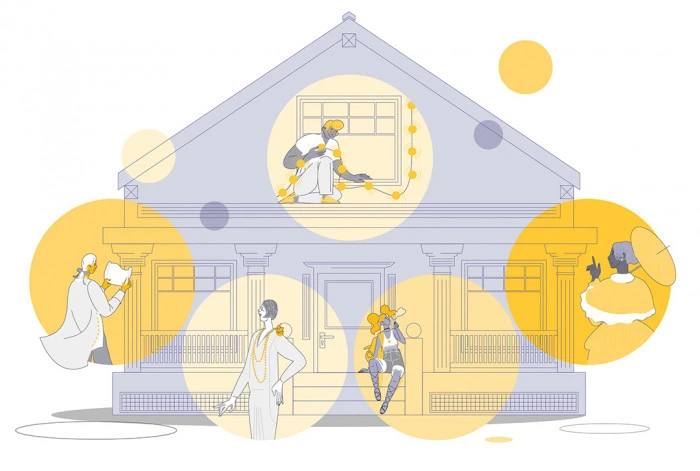Share what you know,
and discover more.
Share what you know,
and discover more.
Mar 30, 2023

-

- Charmaine Bantugan
Homewood House
Completed in 1808, for Colonel Charles Carroll IV (1775-1825) and his wife Harriet Chew (1775-1861) of Cliveden, Philadelphia. In 1801, Charles' father - one of the wealthiest men in America - gifted the couple this 140-acre estate (formerly called Merryman's Lott) and Charles built the house to his own design at a cost of $40,000. However, Charles' drinking led to his wife and children leaving him for Philadelphia in 1816. His bad management of the estate continued and led to his father buying it back in 1824 in a bid to put right his "most improvident waste"... Alcohol killed Charles IV the following year and his father gave Homewood to Charles' son, Charles Carroll V (1801-1862), as a home until he inherited Doughoregan Manor. In 1839, Charles V sold Homewood for $25,150 to Samuel Wyman (1789-1865), a native of Boston who became a successful dry goods merchant at Baltimore. In 1902, his son who had made his home there, William Wyman (1825-1903), donated the Homewood estate with its 179-acres and a $1 million endowment to John Hopkins University. In 1973, funds were received from Robert G. Merrick allowing the university to operate the house as a museum. Renovated with original period furniture, it is open to the public today.
Homewood House
Completed in 1808, for Colonel Charles Carroll IV (1775-1825) and his wife Harriet Chew (1775-1861) of Cliveden, Philadelphia. In 1801, Charles' father - one of the wealthiest men in America - gifted the couple this 140-acre estate (formerly called Merryman's Lott) and Charles built the house to his own design at a cost of $40,000. However, Charles' drinking led to his wife and children leaving him for Philadelphia in 1816. His bad management of the estate continued and led to his father buying it back in 1824 in a bid to put right his "most improvident waste"... Alcohol killed Charles IV the following year and his father gave Homewood to Charles' son, Charles Carroll V (1801-1862), as a home until he inherited Doughoregan Manor. In 1839, Charles V sold Homewood for $25,150 to Samuel Wyman (1789-1865), a native of Boston who became a successful dry goods merchant at Baltimore. In 1902, his son who had made his home there, William Wyman (1825-1903), donated the Homewood estate with its 179-acres and a $1 million endowment to John Hopkins University. In 1973, funds were received from Robert G. Merrick allowing the university to operate the house as a museum. Renovated with original period furniture, it is open to the public today.
Mar 30, 2023
Homewood House
Completed in 1808, for Colonel Charles Carroll IV (1775-1825) and his wife Harriet Chew (1775-1861) of Cliveden, Philadelphia. In 1801, Charles' father - one of the wealthiest men in America - gifted the couple this 140-acre estate (formerly called Merryman's Lott) and Charles built the house to his own design at a cost of $40,000. However, Charles' drinking led to his wife and children leaving him for Philadelphia in 1816. His bad management of the estate continued and led to his father buying it back in 1824 in a bid to put right his "most improvident waste"...Alcohol killed Charles IV the following year and his father gave Homewood to Charles' son, Charles Carroll V (1801-1862), as a home until he inherited Doughoregan Manor. In 1839, Charles V sold Homewood for $25,150 to Samuel Wyman (1789-1865), a native of Boston who became a successful dry goods merchant at Baltimore. In 1902, his son who had made his home there, William Wyman (1825-1903), donated the Homewood estate with its 179-acres and a $1 million endowment to John Hopkins University. In 1973, funds were received from Robert G. Merrick allowing the university to operate the house as a museum. Renovated with original period furniture, it is open to the public today.
Posted Date
Mar 29, 2023
Historical Record Date
Mar 30, 2023
Source Name
House Histree
Source Website
Delete Story
Are you sure you want to delete this story?











